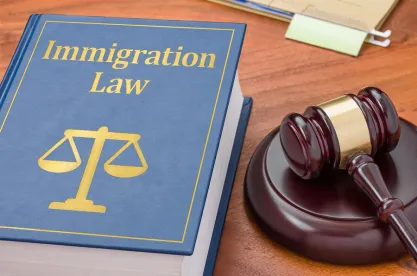The H-1B visa category is the most popular nonimmigrant work visa category in the U.S. under which employers sponsor skilled, professional workers for employment. This is largely because it allows foreign graduates in the U.S. for university undergraduate and graduate education to work in the U.S. after graduation. H-1B regulations stipulate that to qualify for an H-1B visa, the employer must have a professional position that requires at least a Bachelor’s degree (or equivalent) in a specific field, and that the candidate meets that requirement.
Approximately 65,000 H-1B visas are available each year, and an additional 20,000 are available to foreign nationals who have graduated from a U.S. Master’s program, or any other U.S. graduate degree program (e.g., Ph.D. and M.D.). For the last several years, more petitions have been filed than H-1B visa numbers have been available, and a regulated, mandatory lottery was applied to determine which, cases would be accepted for H-1B processing.
In 2015, just over a third of H-1B cases filed under the visa cap for fiscal year 2016 were accepted for processing. Nearly 150,000 cases were rejected under the lottery. No improvement is expected this year.
Unfortunately, the situation can get worse. Over the last five months, members of both houses of Congress have proposed legislation to tighten H-1B regulations. These bills propose to:
-
reduce the number H-1B visas available each year (from 65,000 to 50,000);
-
bar employers from using the H-1B program to sponsor foreign workers within two years of a layoff, furlough, or employees strikes;
-
bar employers from using the H-1B program to bring foreign workers to the U.S. for training, then transfer them overseas and lay off the U.S. workers who trained them; and
-
require employers to make a good-faith effort to recruit U.S. workers before filing H-1B petitions to hire foreign workers.
One bill also proposes to eliminate the Optional Practical Training program, which allows foreign nationals who graduate from a U.S.-degree program to work in the U.S. for up to one year after graduation.
The fiscal year 2017 H-1B visa filing window opens on April 1, and USCIS will accept all cases filed until April 7, 2016. During April, USCIS will conduct the lottery for all Master’s Cap cases, and then for all remaining H-1B cases filed. Cases that are rejected for processing will be returned. Any foreign national graduate working on OPT and awaiting change to H-1B status may continue working, even after the OPT work authorization expires, until a decision is made on his or her H-1B case.




 />i
/>i

